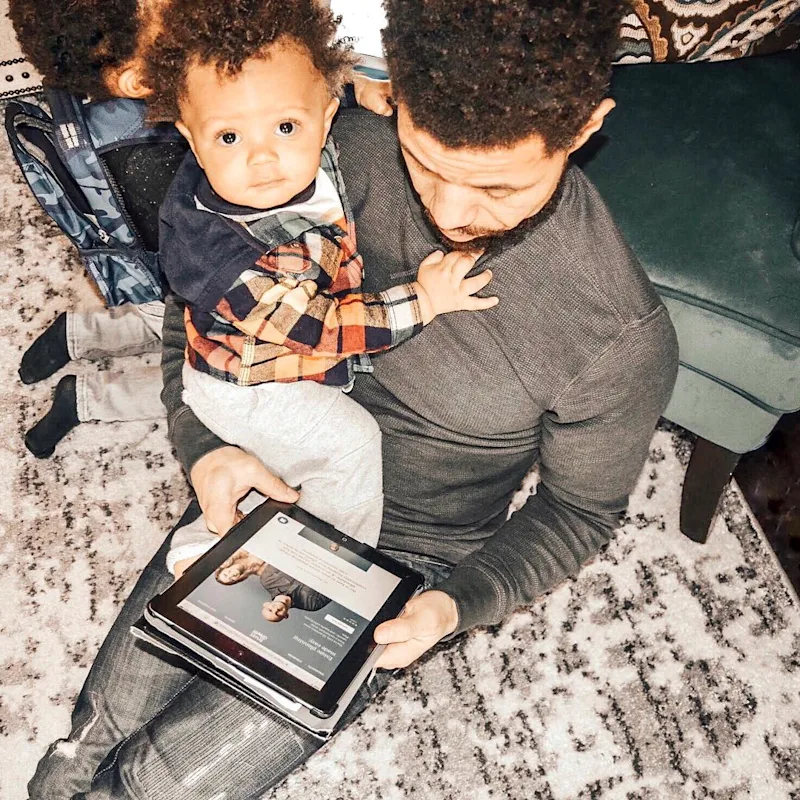
Grief During the Holidays: Tips for Surviving Grief This Holiday Season
Sometimes even the most wonderful time of the year can feel lonely. Keep reading for some tips on making it through the hard times this holiday season.

By Staff Writer
Trust & Will
The holidays only come once a year. But for many people, the holiday season can be a difficult time. Dealing with grief this time of year isn’t easy. But you are not alone. Keep reading to learn how you can navigate and survive grief this holiday season.
Christmas, Hanukkah, Kwanzaa, New Year’s Eve – as the holidays approach you may be noticing the decorations, the shoppers, the advertisements with happy scenes of families and loved ones gathered together. But there’s a side to the festivities that you may not see: the grief that is experienced especially during these weeks.
It may not be talked about much, but it’s there. Grief is a very real part of the holidays for countless individuals and families. Grief is most commonly experienced after a death, but any sort of loss can bring about a grieving process. That process is a personal one and may ebb and flow at times. Holiday times can be particularly challenging for those who have experienced a loss.
Holiday Grief
Grief is not exclusive to any one time of the year, and there’s no time limit for it. But there are certain times when grief may become more pronounced. The holidays are often a time of get-togethers and celebrations. But with someone missing from the table this year, things just aren’t the same. No matter what stage of grief someone is in, it can be an incredibly difficult time.
Sometimes the first Christmas or holiday after a death, divorce, separation, or other loss can be the hardest. Sometimes, longer-term grief that has subsided swells up around a significant day, week, or month. Sometimes the memories of past holidays and shared traditions can exacerbate the already overwhelming sense of grief.
Everyone may experience it differently, but grief is a common feeling and a natural response to loss. If you’re grieving this holiday season, remember to be kind to yourself as learn ways to cope with grief at Christmastime, Hanukkah, and into the New Year.
Coping with Grief During the Holidays
Surviving grief this holiday season means learning to manage what you can, to handle things with the emotional tools and skills that are helpful to you. During the holiday season, you may need to rely on strategies for coping with grief more than usual, or you may need to try some new ones.
Decide what you can do.
Maybe everyone always came to your house for the holiday dinner, but this year you’re just not feeling up to it. Maybe going to parties is out of the question. Maybe you can’t think of any gifts to get this year.
Determine what you realistically can do this year, and what you’d rather let someone else handle. Allowing someone else to do the cooking and hosting, or shopping online for no-fuss gifts may be what’s called for. Don’t overwhelm yourself further by expecting to do everything you’ve done in years past.
However, while being around others may be difficult, try to avoid completely isolating yourself. Being around people who care about you and support you can be especially important this time of year. If meeting in person isn’t possible, reach out to friends and family online or over the phone.
Validate your feelings – all of them.
You can be sad. You can be angry. You can be hurt. And you can be happy at times too without having to feel guilty or that you’re not grieving as you should. Recognizing the emotions you’re feeling, as well as memories or reminders around the holidays that may be difficult for you, is a first step in processing grief.
Grief is complex and multifaceted. Missing someone and mourning what is lost often takes time to come to terms with. Knowing how you feel about your unique experience, and knowing what the holidays mean for you can be valuable in managing to cope with grief and loss.
Honor old traditions or create some new ones.
Since everyone copes with grief during the holidays differently, you’ll have to see what works for you. Perhaps you’d like to honor the memory of a loved one by continuing on with a holiday tradition. Or – if the tradition is a painful trigger for your grief – maybe come up with some new ones. You can create a new tradition to remember a loved one during the holidays, and include it in your holiday celebration, such as: sharing a story about them or making a toast to them, preparing one of their favorite dishes for the holiday meal, lighting a candle, playing their favorite songs, or making a holiday donation to a charity or family in need in their memory.
Lean on healthy grief-support tools.
There are a lot of resources out there that can make dealing with holiday grief a little easier, including:
Books on grief and grief during the holidays. There are many books covering the grieving process, from the scientific to the spiritual. Since the holidays can be such a painful time for those going through the grieving process, there are also books that offer tips on getting through the holidays while processing grief.
Online resources, including counseling services and podcasts on grief. Talking about your experience and/or hearing about the experience of others may be helpful for holiday grief.
Grief support groups in your area or virtual grief support groups. There are support groups for spouses, parents, divorce support groups, and others who are coping with grief during the holidays.
Practice self-care.
The holidays can tempt some to self-medicate or fall into unhealthy coping mechanisms for their grief. Practicing self-care instead can help keep holiday grief-related depression at bay. Self-care can be whatever you do to stay healthy and feeling well, such as taking the time to do something you enjoy, exercising, writing in a journal, practicing a hobby, getting enough sleep, and eating healthily.
It can be hard to deal with grief during the holidays – finding some useful tips for surviving grief this holiday season may help you get through the rough spots. There’s no one way to grieve, your grieving process will be unique to you. Managing what you can, though, and re-organizing your life after a loss can take time. Once you decide the time is right, setting your affairs in order can be a good decision for you and your family. Here at Trust & Will, we make it easy to set up Wills, Trusts, Guardianships, and more. Learn more about our online estate planning services or contact us now to get started.
Last updated: March 21, 2025



